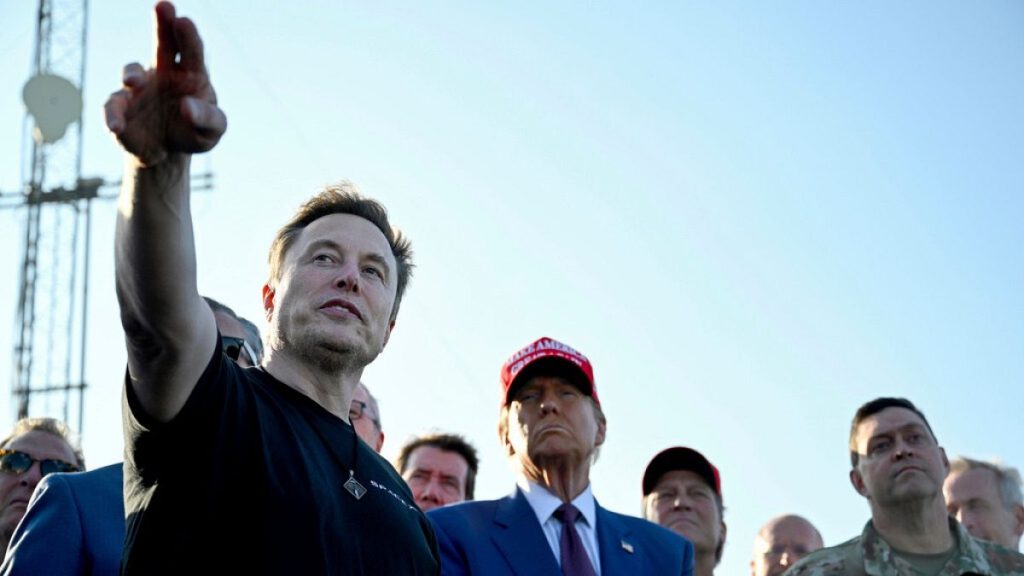Elon Musk’s recent online activity has ignited a firestorm of controversy in the United Kingdom, centering on his vocal support for far-right activist Tommy Robinson and his scathing criticisms of the Labour government. Musk’s call to “Free Tommy Robinson,” prominently displayed on his X profile, follows a series of posts attacking Labour Prime Minister Keir Starmer and Safeguarding Minister Jess Phillips for their handling of past child sexual exploitation cases in Rochdale and Oldham. This overt endorsement of a figure known for promoting racist and Islamophobic views has drawn sharp rebukes from British MPs, some of whom have described X as a “cesspit” under Musk’s ownership. Robinson, whose real name is Stephen Yaxley-Lennon, has a history of involvement with extremist groups like the English Defence League and is currently imprisoned for contempt of court. Musk’s intervention in UK politics raises concerns about the platform’s role in amplifying extremist viewpoints and the potential influence of social media magnates on democratic processes.
Musk’s attacks on the Labour government extend beyond the Robinson issue, encompassing accusations against Starmer for his role as head of the Crown Prosecution Service during the period of the Rochdale and Oldham grooming scandals. Musk alleges Starmer failed to adequately prosecute the perpetrators, despite Starmer’s later involvement in appointing the prosecutor who ultimately brought the offenders to justice. Furthermore, Musk has targeted Minister Phillips, suggesting she “deserved to be in prison” for her calls for an inquiry into child exploitation in Oldham. This aggressive rhetoric has intensified existing tensions between Musk and the UK government, with previous clashes occurring over Musk’s predictions of civil war in Britain. The billionaire’s repeated criticism of the Labour government, coupled with reported considerations of donating to the fringe Reform UK party, signifies a deepening engagement with British politics, albeit one fraught with controversy.
The controversy surrounding Musk’s pronouncements is further complicated by his burgeoning relationship with US President-elect Donald Trump. Musk has been appointed as co-chair of Trump’s “Department of Government Efficiency,” a position of significant influence over potential policy changes. This close association raises questions about the alignment of Musk’s political views with those of the incoming US administration, particularly in light of his endorsements of far-right figures in both the UK and Germany. Musk’s public support for the Alternative for Germany (AfD) party, a far-right political force in Germany, prompted accusations from the German government of attempting to influence upcoming elections. This pattern of aligning with right-wing movements across Europe suggests a broader political agenda that transcends national boundaries.
The implications of Musk’s actions extend beyond the immediate political landscape. His ownership of X, a platform with immense global reach, provides him with a powerful tool to disseminate his views and potentially shape public discourse. The concerns raised by British MPs about X becoming a “cesspit” reflect a wider anxiety about the platform’s role in amplifying disinformation and hate speech under Musk’s leadership. The exodus of several MPs from X in August, citing concerns about the platform’s direction, underscores the growing unease surrounding Musk’s stewardship. This situation raises fundamental questions about the responsibilities of social media platforms in safeguarding democratic processes and preventing the spread of harmful content.
The intersection of Musk’s political interventions, his ownership of a major social media platform, and his close ties to the incoming US administration creates a complex and potentially volatile scenario. His endorsement of far-right figures like Robinson and the AfD party raises questions about the extent to which he seeks to influence political outcomes in countries beyond the United States. The reaction from governments and political figures in the UK and Germany suggests a growing awareness of the potential impact of Musk’s actions and a determination to resist his perceived interference in their domestic affairs. The unfolding situation highlights the increasing significance of social media platforms as battlegrounds for political influence and the challenges posed by the concentration of power in the hands of tech billionaires.
The ongoing controversy surrounding Musk’s pronouncements underscores the evolving relationship between technology, politics, and freedom of speech. While Musk frames his actions as exercises in free expression, critics argue that his immense platform and influence carry a responsibility to avoid amplifying harmful viewpoints. The debate over the limits of free speech on social media platforms is far from settled, and Musk’s actions are likely to continue fueling this discussion. The responses from governments and civil society organizations will be crucial in shaping the future landscape of online discourse and determining the extent to which tech billionaires can exert political influence through their ownership of powerful communication platforms. The coming months will likely reveal the long-term consequences of Musk’s interventions and their impact on political stability and democratic processes in both Europe and the United States.

